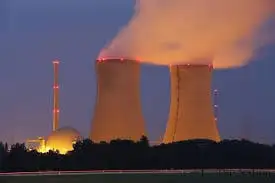The greening of a coal giant: TransAlta
Coal-fired power producer TransAlta Corp. has succeeded in buying some solid green credentials by signing a deal to take over wind and hydro powerhouse Canadian Hydro Developers Inc.
After weeks of promising that it had a better offer poised in the wings, Canadian Hydro decided to opt for TransAlta's proposal, at a significant premium to the initial take-over offer.
TransAlta will now pay $5.25 per share in cash for each Canadian Hydro share, up from its first bid of $4.55 a share that it made in July.
The price for all the shares will be about $755-million. TransAlta said the total value of the deal, including picking up Canadian Hydro's debt, is about $1.6-billion.
Once TransAlta absorbs the Canadian Hydro assets - 21 hydro, wind and biomass plants in four provinces - the combined company will generate 22 per cent of its power portfolio from renewable sources.
TransAlta already has a number of renewable power projects in its portfolio, generating about 15 per cent of its total power output.
That's particularly important for TransAlta, which doesn't expect to build any new coal plants once its finishes its Keephills 3 plant that is set to open in 2011.
The acquisition of Canadian Hydro will give TransAlta access to "green" credits, which could become very important to offset the carbon emitted from its coal and natural gas plants, once climate change regulations are in place.
The deal with Canadian Hydro "accelerates the expansion of TransAlta's renewable portfolio and will open the door to new and exciting opportunities for employees of both companies," TransAlta chief executive officer Steve Snyder said in a statement.
Canadian Hydro had rejected TranAlta's offer since it was first floated. The Calgary firm cited a number of grounds, but most of them related to the value of the bid, which it claimed was "opportunistic" at a time when stock markets were depressed and the company was poised for expansion.
TransAlta extended its offer a number of times, but no other proposal for Canadian Hydro ever came to light, even after the company opened a data room and claimed it had a number of possible alternatives in the works.
The boards of both companies said they support the new deal, and Canadian Hydro is encouraging its shareholders to accept the offer.
"We believe the revised offer from TransAlta provides our shareholders with a premium and liquidity," said Dennis Erker, chairman of Canadian Hydro's board.
Mr. Snyder said the two companies combined were well positioned to become a North American leader in renewable energy.
"We believe this transaction delivers certain and fair value to Canadian Hydro shareholders while providing TransAlta shareholders with both near and long-term value," Mr. Snyder said.
Canadian Hydro Developers currently operates 694 megawatts of wind, hydro and biomass power plants in Alberta, Ontario, Quebec and British Columbia. It also has development projects in western and eastern Canada.
Combined, TransAlta and Canadian Hydro Developers would have net generation capacity of 8,657 megawatts in operation, primarily from coal-fired plants. The renewables portfolio would include 1,900 megawatts.
TransAlta said it will use existing credit facilities, cash, and new funding underwritten by Royal Bank of Canada, to pay for the Canadian Hydro shares. Eventually it will replace this with long-term funding from a $350-million to $400-million share issue.
Related News

'Pakistan benefits from nuclear technology'
LAHORE - Pakistan is utilising its nuclear technology to achieve its full potential by generating electricity and attaining socio-economic development goals outlined by the United Nations Sustainable Development Goals.
This was stated by Pakistan Atomic Energy Commission (PAEC) Chairperson Muhammad Naeem on Tuesday while addressing the 64th International Atomic Energy Agency (IAEA) General Conference (GC) which is being held in Vienna from September 21.
Regarding nuclear security, the PAEC chief stated that Pakistan considered it as a national responsibility and that it has developed a comprehensive and stringent safety and security regime which is regularly reviewed and upgraded in accordance with IAEA's…




